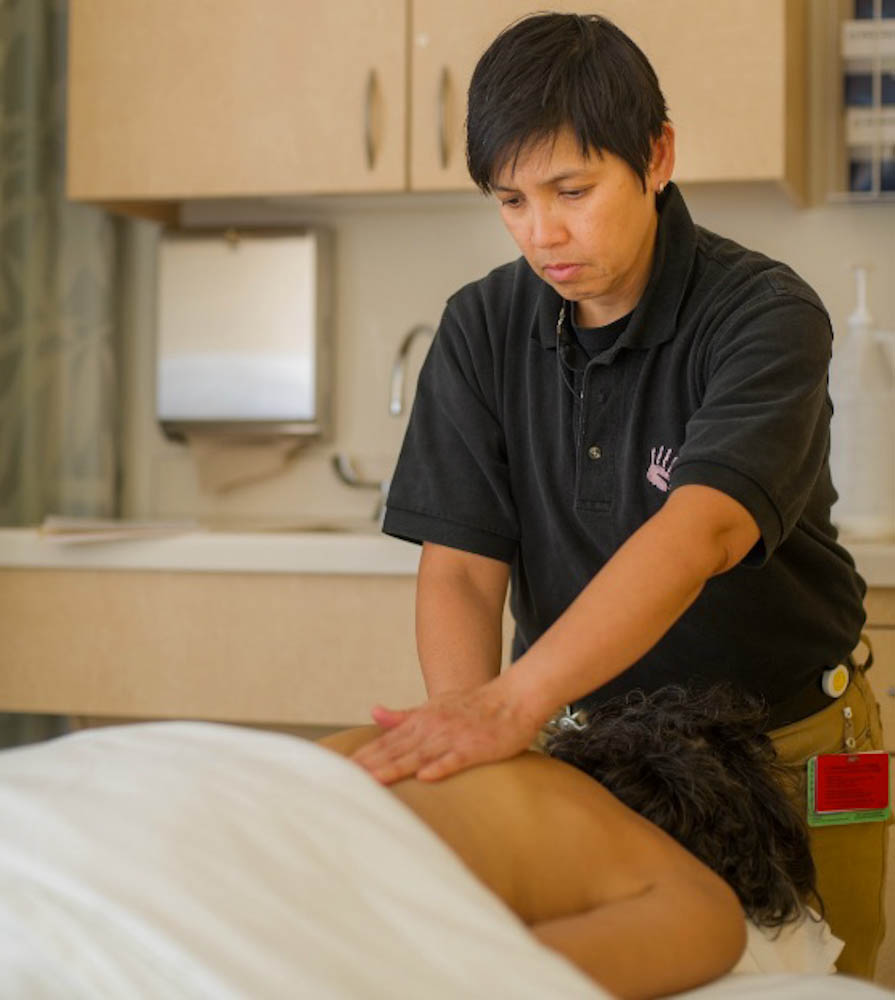
Any cancer diagnosis and treatment can take a physical and emotional toll on patient. For many lung cancer patients, post-operative pain and muscle tension, as well as breathing and sleeping issues, are common side effects. To help ease some of these symptoms, patients can seek out integrative therapies, which can be used in conjunction with standard treatment.
“Patients who participate in integrative therapies may experience fewer side effects of treatment and therefore, have a better quality of life,” says Bambi Mathay, MD, LMT, oncology massage therapist and reiki master practitioner at Dana-Farber’s Leonard P. Zakim Center for Integrative Therapies.
Lung cancer patients often feel pain in the nerves or in the muscles around the chest, neck, upper back and shoulders. Massage, reflexology and reiki use touch to help ease that pain, which can be caused by surgery, or the cancer itself.
Acupuncture may also relieve common symptoms like pain and muscle tension. During the procedure, hair-thin needles are inserted in particular spots on the arms, stomach, head or hands to stimulate the brain to produce and modify chemicals such as dopamine, serotonin and endorphins, also known as “feel good chemicals”.
For some lung cancer patients, oncology acupuncture can help them quit smoking. Weidong Lu, MB, MPH, PhD, Lead oncology acupuncturist at the Zakim Center says Ear acupuncture alters the way cigarettes taste through changes in sensory perceptions, making them less appealing. He adds that the rate of smoking in lung cancer patients decreases 20 percent over three months of acupuncture.
“Acupuncture alleviates multiple symptoms simultaneously without the need for more pills or pain medication,” says, Lu, who adds that acupuncture is very safe for patients.
Qigong and tai chi are Chinese mind-body practices that incorporate postural exercises and slow-moving meditation poses to harmonize the body, mind and spirit. The stretching of the spine and specialized breathing technique can help lung cancer patients ease pain and increase muscle strength.
Read more:
Can Acupuncture Ease Cancer Symptoms?
Webchat: How Integrative Therapies Can Benefit Cancer Patients
Creative arts therapy, meditation, music therapy and nutritional counseling are also forms of integrative therapy that help relax and nourish the mind and body, allowing patients feel better during and after treatment.
For more information on integrative therapies, visit the website for the Zakim Center for Integrative Therapies.
